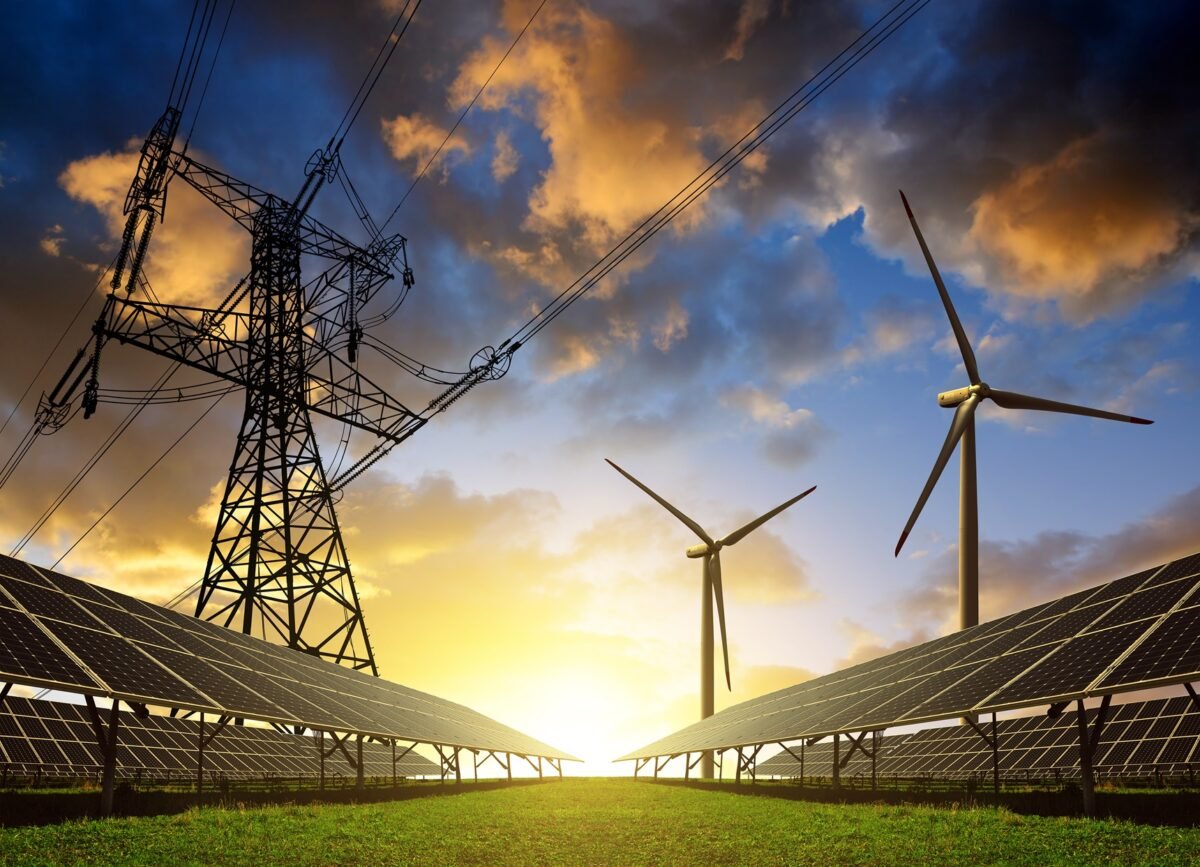UAE-based AMEA Power and Averi Finance have joined the U.S.-led Power Africa Initiative, a program designed to mobilise investments and accelerate power generation projects across sub-Saharan Africa.
AMEA Power has set a target of 5GW of renewable energy capacity in Africa by 2030 and plans to mobilise $5 billion in capital to achieve this.
Meanwhile, Averi Finance aims to facilitate $5 billion in investments, develop 3GW of power generation projects, and construct over 3,000 kilometers of transmission and distribution lines.
The United States and the United Arab Emirates are expanding their efforts to combat energy poverty in Africa under the U.S.-UAE Partnership to Accelerate Clean Energy (PACE) initiative.
Both companies will benefit from tailored assistance provided by U.S. government departments and agencies, as well as transaction advisors and technical experts.
This partnership builds on existing collaboration with UAE-based firm Phanes Group and is expected to play a pivotal role in bringing new power connections to over 500,000 homes and businesses in Africa.
The projects are expected to help reduce or avoid 90 million tons of CO2 emissions, contributing to global climate efforts while addressing the region’s energy challenges.
The announcements came during His Highness Sheikh Mohamed bin Zayed Al Nahyan’s official visit to Washington, where he met with U.S. President Joseph R. Biden Jr.
The visit marked the first-ever trip by a UAE president to the White House and emphasized the strong bilateral ties between the two nations.
Both leaders underscored the importance of the Power Africa initiative and the broader impact it will have on sustainable development in sub-Saharan Africa.
In addition to the focus on Africa, the U.S.-UAE partnership extends to clean energy collaboration in the United States.
ADNOC, the UAE’s national oil company, will acquire a 35% stake in ExxonMobil’s proposed low-carbon hydrogen and ammonia production facility in Baytown, Texas.
The plant is expected to produce up to 900,000 tons of low-carbon ammonia annually, providing cleaner fuel alternatives for hard-to-decarbonize sectors.
The investment stresses ADNOC’s commitment to the global clean energy transition and is a major expansion of the UAE’s renewable energy footprint in North America.
The U.S. and UAE are also advancing efforts in cutting-edge fusion energy technology. Abu Dhabi’s Plynth Energy, a government-backed early-stage fund, announced an investment in Zap Energy, a U.S.-based company focused on developing scalable and commercially viable fusion reactors.
Zap Energy is part of the U.S. Department of Energy’s Milestone-Based Fusion Development Program and will receive funding based on reaching key development milestones.
The collaboration aims to support the further development of small-format commercial fusion technologies, which could revolutionise the energy landscape by providing virtually limitless, clean power.
Methane reduction is another key area of collaboration between the two countries. Both the U.S. and UAE, participants in the Global Methane Pledge, have committed to accelerating their domestic methane reduction efforts and supporting other nations in doing the same.
The pledge focuses on advancing methane abatement projects, tightening standards and regulations, and addressing methane super emitter events.
Methane, a potent greenhouse gas, is a major contributor to global warming, and efforts to curb its emissions are considered vital in the fight against climate change.
The leaders of both countries praised the outcomes of COP28 in Dubai, where global action on climate change was galvanized by the UAE’s leadership. President Biden commended His Highness Sheikh Mohamed bin Zayed for his crucial role in securing the UAE Consensus, which paved the way for unprecedented global cooperation on climate initiatives.
The U.S.-UAE partnership is seen as instrumental in driving these efforts, not only in Africa and the U.S. but on a global scale.
Looking ahead to COP29, President Biden and Sheikh Mohamed reaffirmed their shared commitment to creating sustainable clean energy jobs, revitalising communities, and integrating renewable energy into digital infrastructure.
The two leaders stressed the importance of continued leadership in addressing the climate crisis, highlighting how initiatives like PACE, the Agricultural Innovation Mission for Climate (AIM4C), and the Global Methane Pledge will play a critical role in achieving global sustainability goals.
In addition to energy initiatives, the partnership between the U.S. and UAE extends to agricultural innovation and food security. The leaders emphasized the need for advancements in agri-tech and vertical farming to address food insecurity, particularly in regions vulnerable to climate change.
Cooperation on humanitarian initiatives in these areas has been central to the two nations’ broader efforts to build climate resilience and promote sustainable development.
President Biden also recognised the UAE’s achievements during its Years of Sustainability (2023-2024) and lauded its role in co-hosting the upcoming UN Water Conference in 2026 alongside Senegal. The conference will focus on ensuring access to clean water, a critical resource in the global clean energy transition and an essential component of sustainable development.





